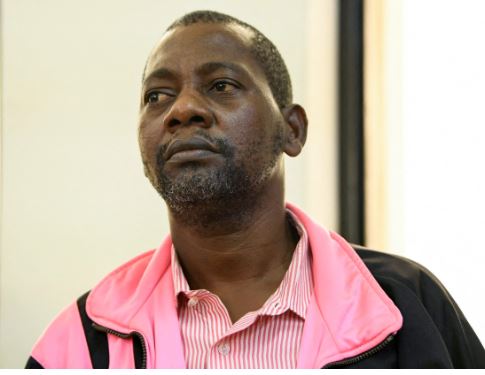EACC flags organised corruption in traffic department, Police IG vows action

Bribery is highly organised, with junior traffic officers carrying out daily collections under directives from senior officers, and proceeds channelled up the chain of command, institutionalising corruption across ranks.
An audit report by the Ethics and Anti-Corruption Commission (EACC) has revealed deep-rooted corruption in the National Police Service’s traffic department, where Public Service Vehicles, matatu SACCOs, and boda boda riders are routinely subjected to paying illegal “protection fees.”
Some officers also fabricate charges against those who refuse to pay.
More To Read
- IG reshuffles top police ranks as six senior officers moved
- What charges Benjamin Netanyahu faces and what a pardon could mean
- IEBC blames police officers for by-election violence, maintains poll largely successful
- Seven arrested over Kariobangi North church chaos as police pursue more suspects
- Wajir police nab suspect with AK-47 rifle in ongoing crackdown on illegal firearms
- EACC traces Sh22.9 billion, recovers Sh3.4 billion in fight against corruption
The audit, conducted between February and June 2025, identified the traffic unit as one of the most compromised areas of the service.
Bribery is highly organised, with junior traffic officers carrying out daily collections under directives from senior officers, and proceeds channelled up the chain of command, institutionalising corruption across ranks.
“They expose all PSVs to routine daily extortion. There were also allegations of targets given to these officers by their seniors,” said EACC Director of Preventive Services Vincent Okongo, who presented the report on Thursday at the National Police Leadership Academy in Ngong.
“For boda boda operators and matatu SACCOs, failure to pay protection fees can lead to fabricated charges.”
The audit has further revealed that the NPS suffers a malignant cancer of corruption that begins at the recruitment level, where the majority of slots are handed to wealthy individuals, politicians and top police officers.
The report notes that corruption runs deep in the police system, and whenever recruitment of police constables is announced, cartels, rogue officers collude to divide available places among themselves and offer them to the highest bidders, making the exercise on the fields a mere charade.
EACC Secretary and CEO Abdi Mohamud described the audit as a “bold statement” by the NPS to confront a past marred by corruption and diminished public trust.
“This was not a fault-finding exercise, but one geared towards strengthening governance systems and making them more resilient to corruption vulnerabilities,” said Abdi, who commended Inspector General Douglas Kanja and his deputies for their cooperation during the process.
To address the systemic weaknesses, EACC recommended the full implementation of the NPS Act and related regulations, development of a corruption prevention framework, automation of recruitment and cash bail systems, regular audits and sting operations, and adoption of technology such as body-worn cameras to enhance accountability.
“Let this report not gather dust on shelves. Let it mark a renewed commitment by leadership, officers, and citizens to rebuild this vital institution,” said EACC Chairperson David Oginde.
On his part, Inspector General of Police Douglas Kanja said the service will act on the findings.
“We have received the report that we had requested EACC to investigate in February. We are going to form the necessary committees, and whoever will be found culpable will face the law,” he said.
The EACC has also urged the Inspector General to develop an implementation matrix within 30 days to guide the enforcement of the recommendations, with progress to be monitored periodically.
“Systems are frameworks for accountability. By exposing weak links and redundant processes, an honest examination is the only way to prove we are worthy of public trust,” said Abdi.
Top Stories Today

















































